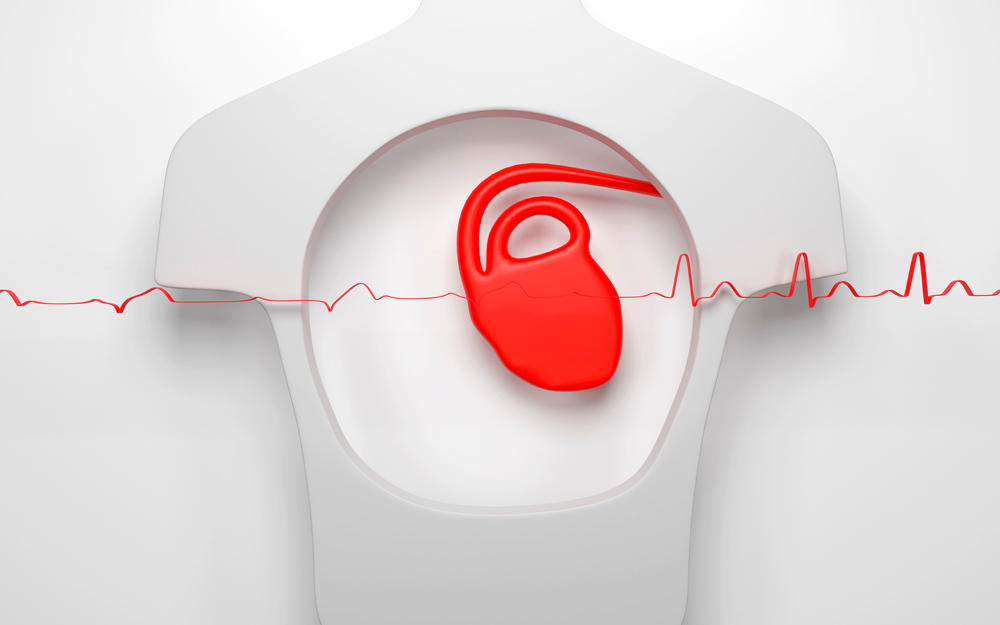Back Into Rhythm: Adjusting to an AFib Diagnosis
Date
February 27, 2023

Date
February 27, 2023
Credits
Medical providers featured in this article

In Brief
{{cta-block}}
It might begin as heart palpitations—a fast, fluttering pounding of the heart that lasts for seconds or minutes. Sometimes, the signs are more subtle: walking up the stairs is much harder than usual or a habitual daily walk is suddenly exhausting. And these days, some people are alerted by their smartwatches.
Whatever signs your body—or your tech—are sending that you might be suffering from atrial fibrillation, the most common heart rhythm problem, it’s important to take notice and take action, says Dr. Michael Shehata, director of the Interventional Electrophysiology Laboratory at the Smidt Heart Institute.
{{providers}}
"Recognizing this kind of heart rhythm issue goes a long way toward preventing any significant long-term problems," Dr. Shehata says. "The earlier you’re diagnosed, the better because you can prevent potentially life-threatening complications."
Atrial fibrillation, or AFib, is an irregular heart rhythm originating in the top chambers of the heart. It affects an estimated 5 million Americans, and experts expect that number to spike to more than 12 million by 2030.
"AFib is a very manageable condition, and a heart rhythm specialist can help make sure you have the best plan for treating it and preventing more serious health risks later."
Once you’re diagnosed with AFib, seeing a heart rhythm specialist is a wise next step. Dr. Shehata shares this advice for newly diagnosed AFib patients.
Ask the right questions
Some of the key questions to address in a first appointment include:
What are the risks of this arrhythmia?
The irregular heart rhythm associated with AFib can cause blood clots in the heart. This means an increased risk of stroke, heart failure and other complications. However, each patient’s specific risks will differ depending on their age, lifestyle, health conditions and other factors. Understanding your specific risks will be important in guiding your treatment decisions.
How is your overall heart function?
A cardiac state-of-the-union is helpful in determining if the arrhythmia is a symptom of another condition. A full workup also will reveal your risk factors for other forms of heart disease.
What are the best treatment strategies for me?
AFib is a very treatable condition, and the options are evolving quickly, Dr. Shehata says. While it’s not necessarily curable, it can be managed effectively and often without sacrificing any much-loved active pastimes. (Though other favorite habits such as drinking alcohol or indulging in rich foods may have to be scaled back considerably.)
What could be causing my AFib?
Sometimes, the cause for AFib is unknown. Usually, it results from other heart-related conditions. Some of these include high blood pressure, congenital heart disease, heart attack, heart failure, coronary artery disease, inflammation of the membrane around the heart, stress from infections, or certain medications. Your heart rhythm specialist can help you home in on what is causing your arrhythmia.
Familiarize yourself with treatment options
Treatment for AFib is usually a combination of medications or procedures as well as lifestyle changes, Dr. Shehata says. Certain procedures may be able to restore the heart’s regular rhythm or decrease the frequency of AFib episodes.
Medications: Medications may be used to prevent blood clots and stroke, slow the heart rate and regulate the heart rhythm. Blood thinners, beta blockers, sodium channel blockers and potassium channel blockers are all common medications that are used to treat AFib.
Minimally invasive treatments: Noninvasive or minimally invasive treatments can sometimes resolve AFib or greatly improve symptoms and reduce the likelihood of recurrences. In electrical cardioversion, a doctor administers a shock to the heart to attempt to restore its normal rhythm.
Catheter ablation is another common procedure, Dr. Shehata says. In this procedure, a thin tube is threaded through veins in the leg to the area of the heart causing the arrhythmia. Then the cells in that area are destroyed. Radiofrequency ablation uses heat to address those cells, while cryoablation freezes the tissue. Electrical maps of the heart are used during these procedures for guidance.
Heart surgery: Heart surgery might be an option, especially for those who are already having bypass surgery or a valve replacement to address another issue. In these cases, the surgeon would make small ablation areas in the part of the heart that causes the arrhythmia, generally by freezing, thus creating scar tissue that blocks the abnormal signals.
Take control of lifestyle changes
If you have AFib and you need to manage your condition—or if you’re at high risk of AFib due to family history or other chronic conditions—lifestyle changes can help.
Choose heart-healthy foods.
Prioritize fruits, vegetables, whole grains and other heart-healthy staples. Limit salt intake.
Exercise regularly.
Find activities you like and move your body. It’s wise to start slowly, especially if exercise isn’t part of your current routine, Dr. Shehata says. Begin with walking five to 10 minutes a day. Work up to 30 minutes of activity a day for five days a week. Moderate intensity—think breathing a little faster, sweating a little bit—is good for most people, but always work with your doctor on your personal exercise plan. Stop if you start experiencing any AFib symptoms.
Stop smoking.
Smoking cessation help is available through your doctor.
Stop or limit alcohol intake.
Alcohol can affect heart rhythm almost immediately. Also, long-term high alcohol intake is associated with the development of AFib.
Manage your body weight.
Reaching or maintaining a healthy weight is a good goal. For overweight or obese patients, losing 10% of your body weight will often result in considerable health benefits.
Monitor and maintain a healthy blood pressure.
Hypertension can increase stroke risk, which is already elevated with AFib.
Keep your cholesterol level in check.
High cholesterol can lead to a fatty build up in the blood vessels. Sometimes, parts of these deposits can break off and cause blood clots, increasing the risk of clots and stroke.
"AFib is a very manageable condition, and a heart rhythm specialist can help make sure you have the best plan for treating it and preventing more serious health risks later," Dr. Shehata says.





